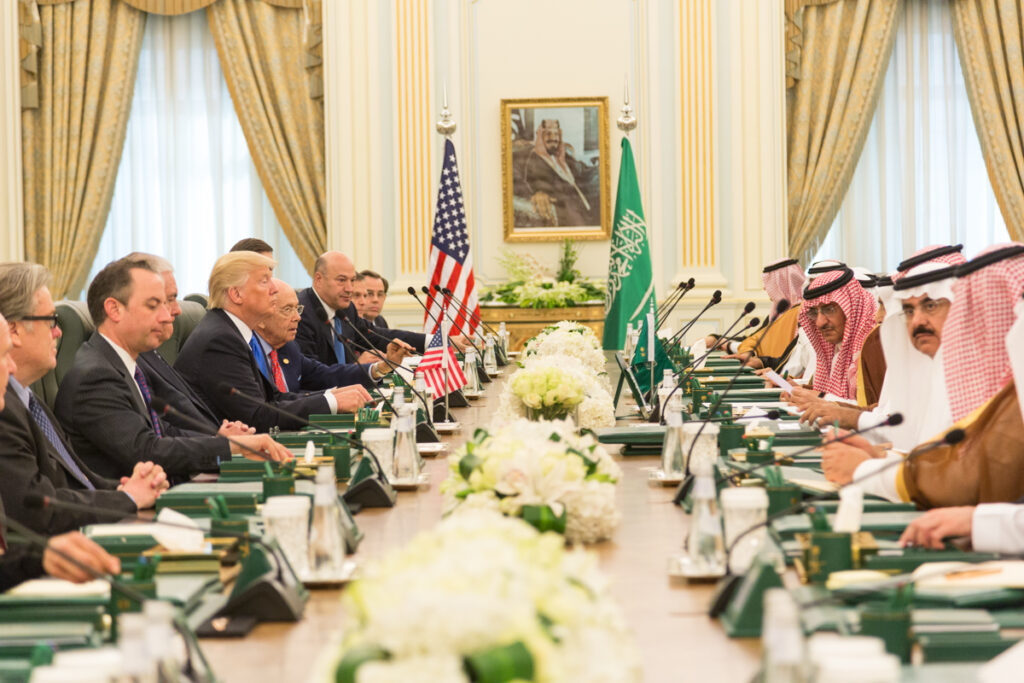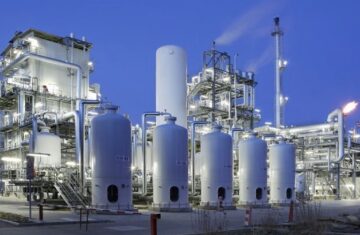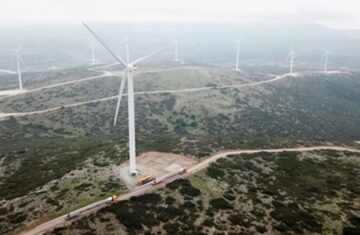Former President Donald Trump is set to embark on a significant visit to the Gulf states this week, with a primary focus on negotiating business deals rather than addressing complex geopolitical issues. This approach reflects a strategic pivot towards enhancing economic partnerships in a region crucial for global energy markets. Here are four key strategies that may unfold during his trip.
Recently, the United Arab Emirates (UAE) announced a commitment to invest $1.4 trillion in the United States over the next decade. This ambitious investment package is expected to target various sectors, including energy and manufacturing. A notable project within this framework is the recent commitment by Emirates Global Aluminum to fund the construction of a new aluminum smelter in the U.S.—the first in 35 years. This facility could potentially double U.S. aluminum production, which is critical for various industries, including automotive and aerospace.
During his visit, Trump is likely to press the UAE to unveil additional investment plans that support U.S. manufacturing, infrastructure, and energy production. Key targets may include sectors like petrochemicals, steel, and battery production, which align with the growing demand for sustainable energy technologies.
Additionally, Trump will seek specifics from Saudi Arabia regarding the $600 billion investment commitment made by Crown Prince Mohammed bin Salman earlier this year. In his first term, Trump indicated that significant purchases of U.S. products from Saudi Arabia would influence his decision to visit the kingdom. This time, he aims to finalize details that could include military equipment purchases and infrastructure investments, emphasizing the importance of economic cooperation.
Saudi Arabia has been attempting to establish a domestic nuclear power program since 2006, signing agreements with various contractors. However, progress has been limited, with only a small research reactor set to come online soon in Riyadh. The kingdom has sought partnerships with Chinese companies for uranium mining and enrichment, raising concerns from the International Atomic Energy Agency (IAEA) regarding the potential for nuclear weapons development.
Recent developments suggest that Saudi Arabia is shifting towards compliance with IAEA standards. In August, the kingdom agreed to allow IAEA inspections to ensure that weapons are not being developed. This newfound openness could facilitate cooperation with the U.S. on nuclear energy projects.
Moreover, the Trump administration has recently abandoned the previous condition that Saudi Arabia must normalize relations with Israel for civil nuclear cooperation to proceed. This change opens the door for potential agreements that would involve U.S. companies in building future reactors and supplying key materials. Such arrangements could enhance U.S.-Saudi energy ties and promote regional stability through safer nuclear practices.
Trump has been vocally advocating for lower oil prices, a stance that resonates with U.S. consumers facing high gasoline prices. While U.S. oil producers prefer to maintain prices above $60 per barrel—given that breakeven costs in productive shale basins are in the low to mid-$60 range—lower prices could alleviate pressure on consumers. Middle Eastern producers appear willing to assist, as OPEC+ recently agreed to increase production by 411,000 barrels per day in June.

While it is unlikely that Trump will push Gulf countries for additional commitments during his visit, he will expect them to honor existing agreements. Monitoring how these countries follow through on production increases will be a key focus, and Trump may use public statements to emphasize the importance of compliance.
Another critical area of focus for Trump will be expanding orders for U.S. liquefied natural gas (LNG) from Gulf countries. Both Kuwait and Iraq have already begun importing U.S. LNG, with Bahrain recently receiving its first shipment. As domestic electricity demand rises in these countries, Trump is likely to encourage them to sign long-term contracts with U.S. LNG suppliers rather than relying on spot market purchases. This strategy would ensure that these nations continue to buy American gas even as Qatar ramps up its LNG production.
For Kuwait, discussions are already underway regarding a 40% stake in an LNG terminal in Louisiana, backed by the Australian company Woodside. However, the terminal won’t be operational until the early 2030s. Trump will likely urge Kuwait to secure additional long-term agreements to mitigate future supply risks, reinforcing U.S. energy security.
Strategically, announcing at least two new LNG agreements with Middle Eastern countries will help bolster Trump’s position as he presses Europe to finalize long-term contracts for U.S. LNG. As Europe seeks to reduce its dependency on Russian gas amid geopolitical tensions, securing commitments from Gulf states could strengthen arguments for immediate U.S. gas purchases.
While Trump’s visit to the Middle East emphasizes strengthening economic ties, it occurs against a backdrop of rising geopolitical tensions involving Israel, Iran, and regional security concerns. The interplay between business and diplomacy is crucial, as energy deals, trade negotiations, and security discussions are likely to emerge as key components of his agenda.
In Trump’s view, business and geopolitics operate in tandem, and everything is open to negotiation. The outcomes of this visit could significantly impact U.S. and Gulf economies, shaping the future of energy cooperation and regional stability in a rapidly evolving global landscape.



